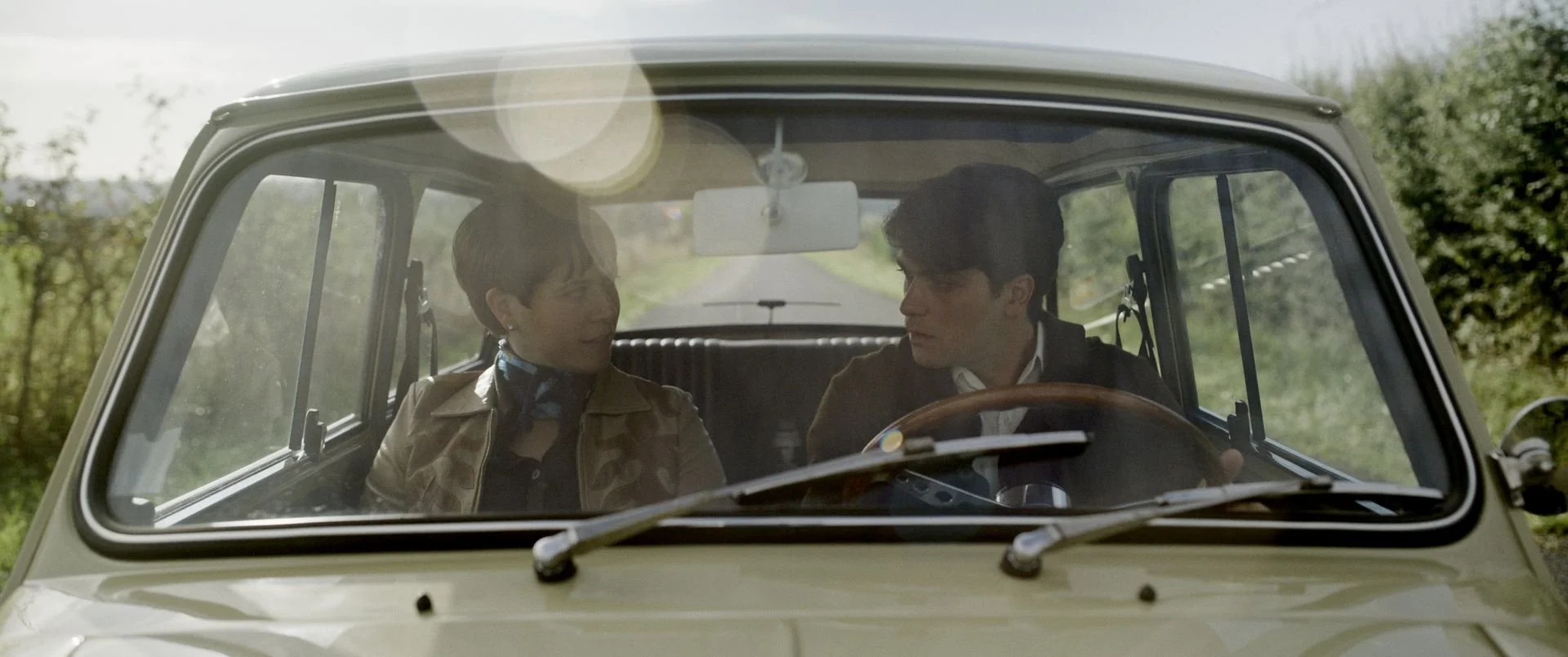IO STO BENE (I AM FINE) raises more questions than answers through its personal histories
Io Sto Bene (I Am Fine)
Written and Directed by Donato Rotunno
Starring Renato Carpentieri, Alessio Lapice, Sara Serraiocco, and Marie Jung
Unrated
Runtime: 1 hour, 34 minutes
Available On Demand through IndiePix Unlimited
by Megan Robinson, Staff Writer
How can we atone for the mistakes we make throughout our lives? No one really has a definitive, right answer. Some demand apologies, others change; others believe there is no changing, and that some transgressions can never be forgiven. All of these answers are true for some, and, often, we can never truly atone for all of the harmful mistakes we make in life. Io Sto Bene, the newest film from writer-director Donato Rotunno, aims to discover the key to atonement, even if it’s a bit predictable and undercooked.
We open on three Italian immigrants, Antonio (Alessio Lapice) and Vito (Vittorio Nastri) Spinelli, cousins, and Giuseppe (Maziar Firouzi) on a train traveling to Belgium and Luxembourg, hoping to make better lives for themselves than what they have in Italy. In the present day, Antonio (Renato Carpentieri) has achieved this goal, running a successful painting company and retiring comfortably in Luxembourg. At a celebratory event, he meets Leo (Sara Serraiocco), the party’s DJ left behind by her boyfriend who needs a ride to another gig. Soon, past and present become as intertwined as Antonio and Leo’s lives, with Antonio’s past teaching us who he is today, and why exactly he helps Leo time and again.
The split timelines are simultaneously a great strength and a great weakness in the film. The transitions between the two are clever, highlighting the thematic parallels within each, such as when Antonio sees a vision of his wife, Mady (Marie Jung), in the mirror crawling into bed and in the next scene putting her clothes back on after sex with a young Antonio. The past timeline makes the present all the more interesting, as a certain betrayal of trust reveals why exactly Antonio is so willing to take care of Leo once her pregnancy is revealed. The present, however, has less time to shine than the past, unfortunately causing Leo to feel underwritten as a character. She is interesting, to be sure, as her DJ sets reveal her ambition and creativity, but so much less time is spent with her that we only get the miserable and painful highlights of her week.
Rotunno’s direction, though, is mostly unremarkable. Everything in the film is competent, with each shot serving its purpose fine enough. Nothing, however, stands out visually besides Leo’s DJ sets. Though the narrative is about the contrast and parallels between the past and the present, the only visual signifiers of this are in the clothing and buildings. The costume design by Magdalena Labuz, particularly in the 60s segments of the film, is one of the stronger aspects of the film, giving a strong glimpse into just how much culture has changed in 60 years. While the direction is simply fine, it’s the editing by Matyas Veress that makes the film truly come together. Combined with the narrative structure, we linger in the past just long enough to understand the present that much more.
It’s in the character arc of Antonio in the present, however, where Io Sto Bene truly shines. There is something to be said about the kind of atonement Antonio is seeking, for his mistake had misogynistic consequences for another, but not for himself. He was still able to find friends, love, and success; Leo, on the other hand, is all but homeless and struggling to survive in a foreign country as an Italian like Antonio. Does Antonio truly find forgiveness, within his own heart, by befriending Leo? This question can have a million answers, which is why it’s the most compelling aspect of the film. Questioning whether the end result is a triumph, a smug pat on the back, or something else entirely makes the film worthy of discussion. It’s this arc that makes it all the more frustrating how less time is spent in the present, but enough is there to spark intrigue.
So, how do we atone? Io Sto Bene doesn’t have all the answers, but it does know that guilt can remain for decades. Though it doesn’t provide a groundbreaking narrative per se, it does keep you guessing and engaged by its central characters. It’s the questions it raises that provide the real greatness of the film.

